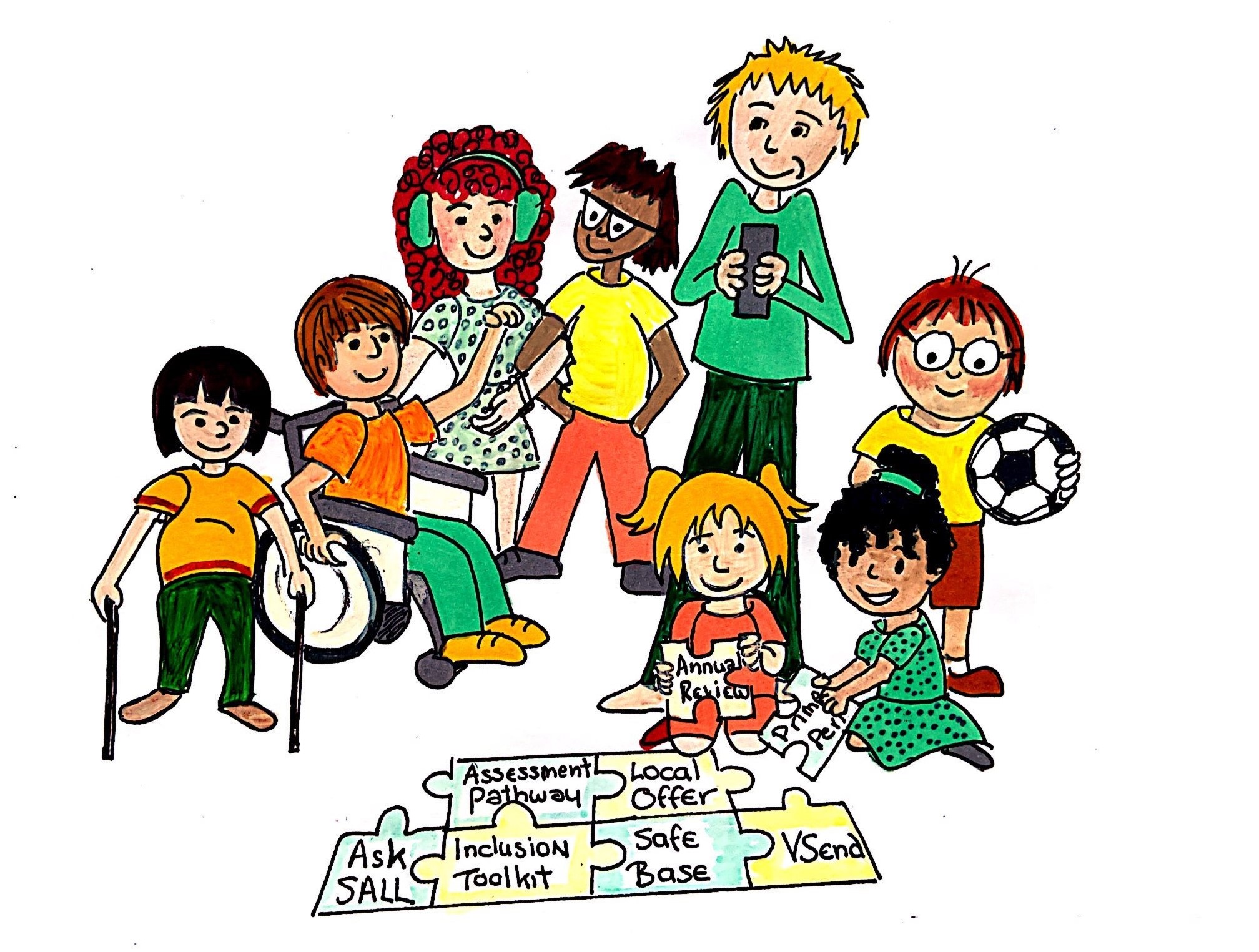Level 7-10 strategies to support highly specialised interventions
High quality teaching, targeted and specialist strategies, approaches and adaptations for pupils should be implemented and supplemented
0-5
- teaching and learning approaches place that provide very finely graded and practical tasks which give opportunities for frequent repetition and reinforcement
- individualised curriculum approach and planned opportunities to access specific programmes of support
- teaching that takes into account language delay: a targeted approach to support the acquisition of new vocabulary; breaking down information into smaller chunks; repeating and rephrasing information; checking understanding through careful questioning
- early literacy activities to take into account the pupil’s ability to hear specific speech sounds and the need for a holistic approach to early literacy
- daily opportunities provided to work one-to-one
- support access to early learning and language.
- consistent and appropriate use of any audiological equipment provided, including a programme of regular equipment checks
- use of visual and practical aids to support new learning
- advice from Qualified Teacher for children and young people with a Hearing Impairment (QTHI) is implemented in the setting
- may include use of sign language to support the learning of new vocabulary
- training for staff to raise awareness of different types of hearing impairment, language development implications, and strategies to reduce barriers to learning
- training in day to day checking and trouble-shooting of problems with audiological equipment
- encourage a sign language friendly environment (as appropriate)
- a high level of adult support for learning, health and safety and risk management
- a monitoring system should be in place to assess child need, identify outcomes, implement support and monitor and evaluate progress
- planned reviews including the parent and child should take place
5-16
- communication may include the use of Sign Supported English (SSE) British Sign Language (BSL)
- differentiation will be required across the curriculum
- teaching approaches place emphasis on independent learning
- teaching that takes into account language delay: a targeted approach to teaching new vocabulary; breaking down information into smaller chunks; repeating and rephrasing information; checking understanding through careful questioning
- literacy teaching to take into account the pupil’s ability to hear specific speech sounds and the need for a holistic approach to teaching reading
- daily opportunities provided to work one-to-one
- access to a radio aid to access learning in mainstream classes
- consistent and appropriate use of any audiological equipment provided, including a programme of regular equipment checks
- use of visual and practical aids to support new learning
- use of subtitles for any video content of lessons
- advice from Qualified Teacher for children and young people with a Hearing Impairment (QTHI) is implemented in the classroom
- exam access arrangements – additional time, ‘live’ speaker for any speaking and listening elements
- a programme of direct teaching planned by Qualified Teacher for children and young people with a Hearing Impairment (QTHI)
- to promote and support language development
- may include use of sign language to support the learning of new vocabulary
- training for staff to raise awareness of different types of hearing impairment, language development implications, and strategies to reduce barriers to learning
- training in day to day checking and trouble - shooting of problems with audiological equipment
- encourage a sign language friendly school environment (as appropriate)
- PHSE programmes that promote a positive sense of identity as a hearing impaired, deaf young person (e.g. NDCS Healthy Minds, Personal Understanding of Deafness programme)
- a high level of adult support for learning, health and safety and risk management
- in-class support from a specialist teaching assistant, which may include SSE or BSL


